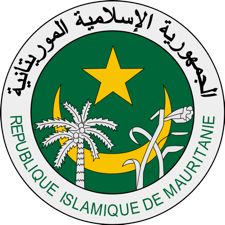

Constantly I am asked the question: "Ada yidi gorko?" In Pulaar this means "Do you want a man?" -- that is, a husband. My go-to response is wagging my finger while sucking my teeth and declaring, "NO! Men are so much trouble! They are all the same!" This gets everyone laughing and, if I'm fortunate, defuses the whole situation. But several gentlemen in my life here are relentless. I get regular phone calls and text messages from would-be suitors. I have a neighbor who proposes to me on a daily basis. When he drops by my family's house, everyone thinks it's very funny to say, "Raky, your fiancé is here!" I tell him that he is crazy. He just replies, in complete seriousness, "But I really want to go to America..."
The fact that I am 24 years old and unmarried makes me all but an old maid. People can scarcely understand it. From the age of about 15, girls in this country are expected to be looking for a husband. To wed at 12 is not strange. From what I've seen, marriage is rarely based on love. (Tellingly, in Pulaar the word for "to marry" is an active verb for men and a passive verb for women -- it is something that happens to the female.) Polygamy is also practiced by some. Men are permitted to have up to four wives, although I haven't seen more than two at once (since the man is expected to provide for each woman equally). As foreign as this idea may seem to us in America, many Mauritanians have tried to convince me that polygamy is a great thing, because it puts far less stress on the first wife in terms of household duties.


It is not strange to see men and women eating around separate bowls at large family meals. When getting into a taxi with strangers, the passengers may do quite a bit of rearranging so that a man does not have to sit next to a woman (if they are married, it's possibly acceptable). At the bank in the capital city, there are four lines of male tellers to assist men, and one female teller for women. At prayer call, men are expected to go to the mosque and pray there with his "brothers." Women pray at home, as the children cry and crawl all over them.
I am grateful to be in the southwest of Mauritania, with the Pulaar people who are fairly liberal regarding women. The major ethnic group in the rest of the country is the Moors, of Arab descent. Moor women almost always wear a mulefa, the full-length veil. The director of my school is a Moor. Before he enters his office in the morning, he shakes the hand of each teacher and greets them. (Greetings are extremely important in this culture.) When he gets to me, though, he just passes me by without a word and certainly without touching me. Did I mention all the other teachers are male?



4 comments:
When you finish, are you returning to study public health (at Harvard or BU)?
A great many returning Peace Corps volunteers seem to do that.
http://www.HSPH.Harvard.edu/
Julie,
Thank you for another interesting update!
Let me be the first to wish you Happy Birthday one day early in the hopes that since you are in Boghe, you may see this post.
Your assignment is a major cultural learning experience. One of the most interesting books I read in college was "The Silent Language", which described the powerful way culture dictates human behavior.
Enjoy your birthday! I love you.
Dad
HAPPY BIRTHDAY MY FRIEND. Love you and miss you. -Melanie
Well, get rid of the pale skin and blue eyes and you'd look just like a native. I love seeing your pics and reading your blog. It is so interesting to learn about your life there. Take care of yourself and may God be with you.
Aunt Dot
ps. Thanks for the postcard, too.
Post a Comment